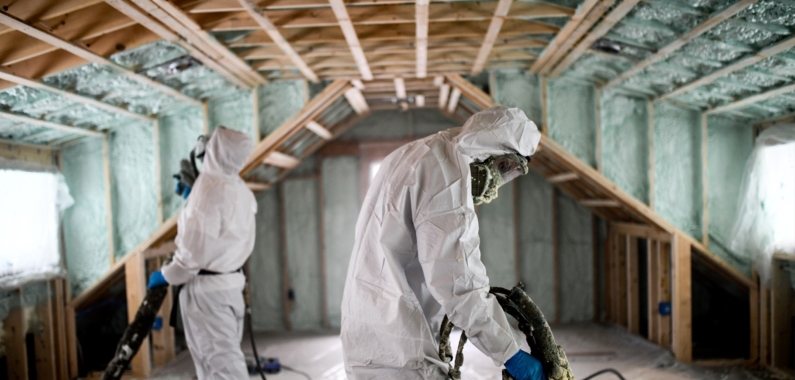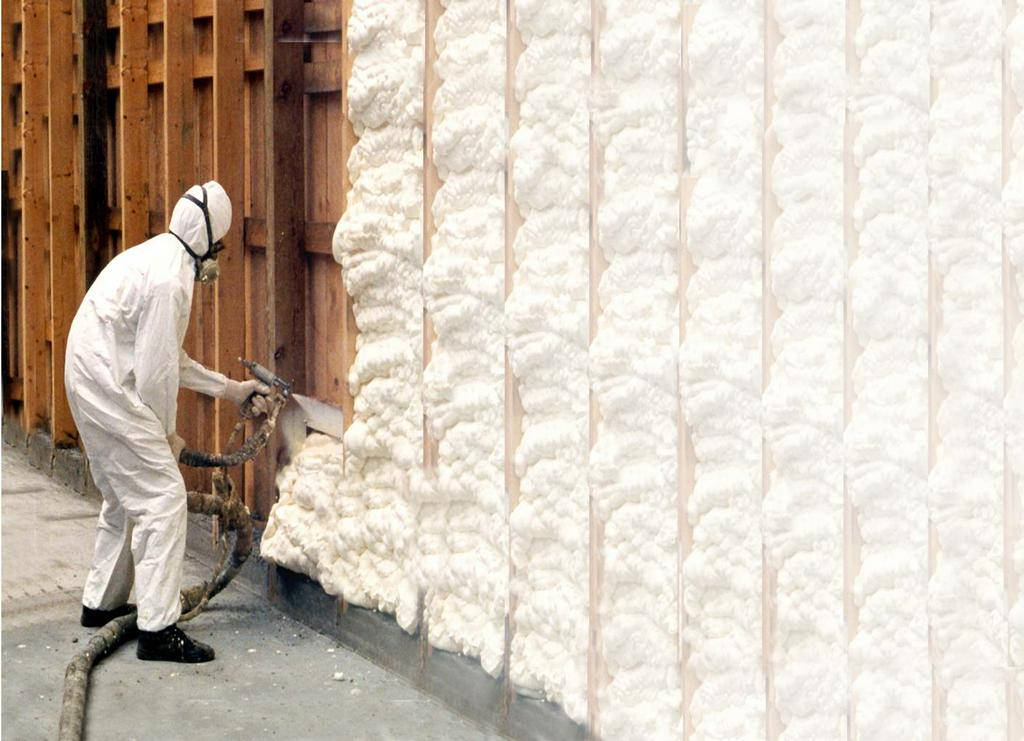Top Factors to Choose Spray Foam for Your Next Insulation Project
When taking into consideration insulation choices for your following project, spray foam stands out due to its outstanding efficiency qualities and effectiveness advantages. As you evaluate your choices, exploring the versatile applications and lasting advantages of spray foam may expose compelling reasons to integrate it into your insulation technique.
Superior Insulation Performance

The high R-value of spray foam, which determines its thermal resistance, is an additional key benefit. Closed-cell spray foam, as an example, can attain an R-value of up to 6.5 per inch, significantly outmatching fiberglass batts and cellulose. Spray foam insulation produces an airtight seal, which minimizes thermal bridging and decreases the potential for mold and mildew development due to moisture buildup.

Power Effectiveness Conveniences
The energy performance advantages of spray foam insulation are substantial, more enhancing its appeal as a top option for developing insulation. Spray foam increases upon application, producing an impermeable seal that lessens air leaks, which is an usual resource of power loss in standard insulation products.
Furthermore, spray foam insulation boasts a high R-value per inch, which implies it provides more thermal resistance in less room contrasted to options like fiberglass or cellulose (Spray Foam). This efficiency not just adds to instant energy savings however also advertises long-term sustainability by lowering the overall energy consumption of a structure
In addition, the execution of spray foam can certify homeowners for energy efficiency motivations and tax obligation credit scores, including monetary advantages to its energy-saving capacities. In an era where power preservation is extremely important, choosing spray foam insulation not only improves convenience yet also aligns with eco responsible techniques, making it a prudent selection for both property and commercial projects.
Moisture and Mold Resistance
Provided its special make-up and application approach, spray foam insulation provides phenomenal wetness and mold and mildew resistance, making it a suitable choice for different settings. The closed-cell structure of spray foam creates a strong barrier that properly seals off prospective moisture access, thus lowering the chance of mold development. Unlike standard insulation materials, which can take in water view and give a breeding ground for mold and mildew, spray foam remains unsusceptible wetness, boosting the total health and wellness of the interior setting.
Furthermore, the application procedure of spray foam entails broadening and loading cracks and gaps, making sure a tight seal that reduces air leakages. This particular not just enhances energy performance yet also assists control moisture degrees within the room. Appropriate humidity control is critical for protecting against mold and mildew, making spray foam insulation specifically beneficial in locations susceptible to moisture, such as cellars and creep areas.
In enhancement to its moisture-resistant properties, spray foam is likewise naturally resistant to mold development. This characteristic makes sure that homes and buildings remain risk-free and healthy and balanced in time, offering satisfaction to property owners and building supervisors alike.
Long-Term Cost Savings
Spending in spray foam insulation yields substantial long-term cost financial savings, mainly through improved power efficiency. Unlike standard insulation products, spray foam creates an impermeable seal that lessens air leakage. This decrease in drafts results in lower cooling and heating costs, as a/c systems do not need to function as tough to preserve comfortable interior temperature levels.
In addition, the superior insulating residential or commercial properties of spray foam imply that homes remain constantly comfortable year-round, reducing dependence on energy-consuming appliances. With time, these financial savings can gather, resulting in a recognizable decrease in energy expenses.
Additionally, spray foam insulation contributes to the durability of your home's framework by stopping wetness buildup and mold and mildew development, which can lead to costly repair work. With its check here durability and resistance to resolving, spray foam maintains its efficiency throughout the years, making sure that the first financial investment remains to repay.
In significance, choosing spray foam insulation not just improves your home's power effectiveness but additionally translates into significant lasting economic advantages, making it a sensible financial investment for home owners seeking to minimize expenses while boosting convenience and sustainability.
Versatile Application Options
Many application choices make spray foam insulation a highly flexible choice for a selection of building jobs (Spray Foam). This flexibility allows it to be effectively utilized in residential, business, and industrial setups, providing to varied insulation demands
Spray foam can be used in attic rooms, wall surfaces, crawl areas, and even roofs, supplying smooth coverage that gets rid of gaps and gaps where air leaks typically occur. Its capacity to broaden upon application guarantees a tight seal, which is vital for energy effectiveness and dampness control.
Additionally, spray foam insulation is readily available in different formulations, including open-cell and closed-cell types, permitting customized solutions based upon details task requirements. Open-cell foam is lighter and much better matched for soundproofing, while closed-cell foam offers premium insulation and architectural integrity, making it ideal for areas revealed to wetness.
Furthermore, spray foam can be applied in hard-to-reach areas, improving its suitability for retrofitting existing structures. With the capacity to stick to numerous substratums, consisting of metal, concrete, and wood, spray foam insulation attracts attention as a flexible option that meets the needs of modern-day structure practices.
Final Thought
In verdict, spray foam insulation emerges as a premium option for insulation projects due to its outstanding thermal resistance, energy performance, and capacity to develop closed seals that protect against moisture and mold and mildew growth. Choosing spray foam insulation makes certain a thorough service that fulfills the needs of modern-day building and construction and power performance requirements.
When it comes to achieving optimum energy effectiveness in commercial and household buildings, spray foam insulation stands out for its superior insulation performance.The energy efficiency benefits of spray foam insulation are substantial, Learn More Here further enhancing its allure as a leading choice for constructing insulation.Investing in spray foam insulation returns considerable lasting price financial savings, primarily via enhanced power efficiency.In verdict, spray foam insulation emerges as a remarkable option for insulation jobs due to its exceptional thermal resistance, energy performance, and ability to produce airtight seals that avoid dampness and mold growth. Choosing spray foam insulation ensures a detailed remedy that meets the demands of modern construction and energy effectiveness requirements.